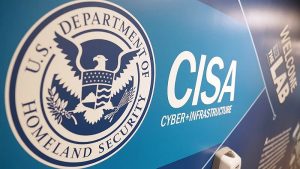The Cybersecurity and Infrastructure Security Agency (CISA) announced Wednesday that it is participating in the Office of Personnel Management’s (OPM) CyberCorps Scholarship for Service (SFS) program, making 100 internship and postgraduate opportunities available to students.
Public sector and higher education leaders are actively developing innovative data analytics and cybersecurity workforce models to combat escalating fraud and cyber threats.
As global cybersecurity hiring begins to stabilize after years of layoffs and frozen budgets, skills gaps loom large as one of the greatest challenges facing the cybersecurity workforce, the new annual ISC2 Cybersecurity Workforce Study found.
A new cybersecurity initiative dubbed the New Jersey Civilian Cyber Resilience Corps (Cyber Corps) aims to mobilize specialized expertise in cybersecurity response and resilience across the state of New Jersey.
Sens. Maggie Hassan, D-N.H., and John Cornyn, R-Texas, introduced a bipartisan bill today that would reauthorize the State and Local Cybersecurity Grant Program (SLCGP), a key program that helps state, local, and tribal governments prevent cyberattacks.
The House voted to pass two key cybersecurity-related pieces of legislation on Monday that would renew cybersecurity grants for state and local government until 2033 and stand up an interagency task force to address threats posed by China.
The Nevada state legislature and Gov. Joe Lombardo have approved and signed into law a bill that will stand up a statewide security operations center and grow its cyber workforce.
The funding package approved by Congress and President Donald Trump has temporarily extended a cybersecurity grant program used by state and local governments to support their cyber defense measures.
Nevada officials attributed the ransomware-based cybersecurity attack the state suffered in August to a state employee unknowingly downloading “a malware-laced system administration tool” from a fake website.
The University of Nevada, Las Vegas (UNLV) already exceeded enrollment predictions for its new online bachelor’s degree in cybersecurity, which launched in the fall semester, and expects increased demand in the spring and fall of 2026, according to the university.









